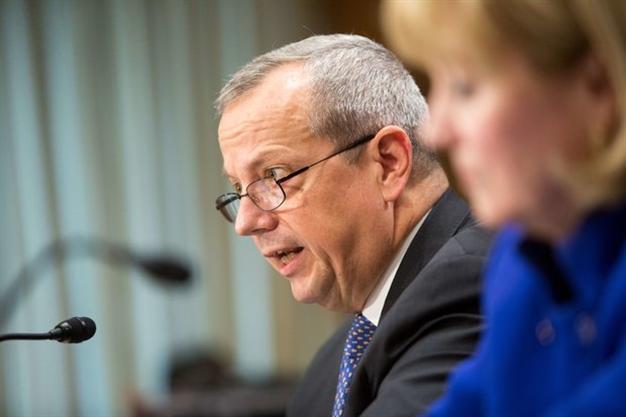‘Combined special forces ops’ against ISIL possible
Murat Yetkin

AFP photo
Combined joint special forces operations against the Islamic State of Iraq and Levant (ISIL) in Syria and Iraq could be a possibility in the coming days, said John Allen, who has just handed over his position as the anti-ISIL coordinator for U.S. President Barack Obama, speaking at a security conference in Halifax, Canada on Nov. 21.
Having served as the head of talks with the Turkish government for over a year until Oct. 23, when he assumed his new position in the Brookings Institution, Allen gave no further details about the nature of possible operations, but he did say a massive ground operation would not be on the agenda.
“You can go there big with Western forces and take off the head of Daesh,” said Allen during a panel at the International Security Forum, using ISIL’s Arabic shorthand. “But what will happen after that? The central [Bashar al-Assad] government cannot control parts of Syria, and who will protect and control the people there when Daesh is removed?”
“Special forces acting together,” perhaps with the inclusion of Kurdish forces on the ground, could take part in the operations, Allen said.
Turkey has no objection to cooperating with the Peshmerga forces of the Kurdistan Regional Government (KRG) but doesn’t want the U.S. to provide arms to the Democratic Union Party (PYD) in Syria, amid concerns that those arms could get into the hands of the outlawed Kurdistan Workers’ Party (PKK) which has been fighting Turkish forces for over three decades.
Allen said Washington and Ankara were planning to secure from ISIL the last remaining 98 kilometers, “west of the Euphrates river,” of the 910 km Turkish-Syria border.
Last week, both U.S. Secretary of State John Kerry and Turkish Foreign Minister Feridun Sinirlioğlu also said a joint military operation against ISIL soon was on the way, underling that this would involve the air forces of both countries and Turkish artillery if necessary.
Sinirlioğlu had said the primary purpose would be to create an “ISIL-free zone” of 98 km along the border west of the Euphrates, with a depth of 40 km into Syrian territory. He said this would be a zone for refugees, with the help of Syrian opposition forces, and would also provide assistance to Syrian opposition forces on the ground.
Allen said it would not be correct to call this a “safe zone,” as Turkish President Tayyip Erdoğan and Prime Minister Ahmet Davutoğlu have been pressing for some time, but rather “a place that could ultimately facilitate the return of refugees and provide security.
Turkey has opened up its strategic İncirlik air base for operations of the U.S.-led coalition against ISIL, of which it is a part. Both countries have been carrying out a number of air raids targets ISIL positions.
Meanwhile, also at the conference in Halifax, NATO Military Committee head General Petr Pavel said NATO would “have to get more involved” in the fight against ISIL. “It may be possible that we could give support to the U.S.-led coalition, but no decision has yet been made,” Pavel told the Hürriyet Daily News.
